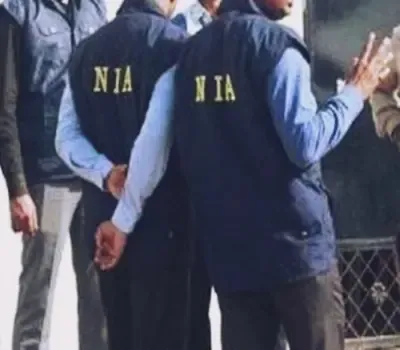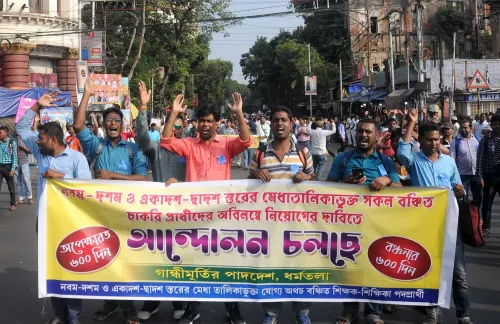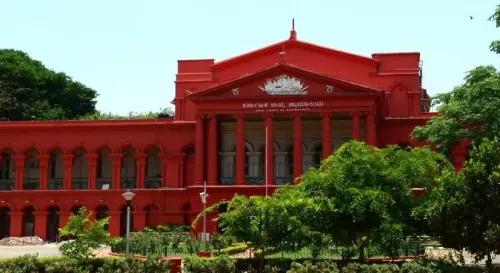Why Did NIA Charge Sheet Five in Arms & Ammunition Seizure Case in Mizoram?

Synopsis
Key Takeaways
- The NIA charged five individuals in connection with arms trafficking.
- A significant amount of prohibited weapons were seized in Mizoram.
- The arms were intended for a militant group in Bangladesh.
- The operation highlights the dangers of illegal arms trade.
- Mizoram shares extensive borders with Bangladesh and Myanmar, complicating security issues.
New Delhi/Aizawl, July 11 (NationPress) The National Investigation Agency (NIA) has filed charges against five individuals in Mizoram in relation to a significant case involving the confiscation of a large cache of prohibited arms and ammunition, intended for delivery to a Bangladesh-based militant group, according to agency sources.
An NIA announcement revealed that the individuals charged are Lalbiakchunga alias Divid alias David, Lalthawmcheuva alias Thawma, Malsawma alias Malsawma Loncheu, Rualliansanga alias Sanga, and Alok Bikash Chakma. They face charges under pertinent sections of the Bharatiya Nyaya Sanhita, 2023, the Unlawful Activities (Prevention) Act, 1967, the Arms Act, 1959, and the Foreigners Act, 1946.
This case was initially registered by the Mizoram Police on January 15. The central investigative agency later took control and re-registered the case two months later, uncovering a criminal conspiracy among the accused to distribute the prohibited weapons and ammunition to armed members of the UPDF (United People's Democratic Front), a militant group located in Chittagong, southeast Bangladesh.
The seized weapons from Saithah village in the western district of Mamit in Mizoram included six AK 47 rifles, 13 magazines, and 10,050 rounds of ammunition.
Investigations continue in this matter.
A Mizoram police representative previously stated that the arms and ammunition were intended for trade between the Chin National Front (CNF), a rebel organization from Myanmar, and the United People's Democratic Front (UPDF), another insurgent group operating in the hilly regions of Chittagong Hill Tracts, which also borders Myanmar.
"This operation underscores the transnational nature of illegal arms trafficking and highlights the persistent threats to regional stability. The seizure of these arms and ammunition has mitigated a severe risk to regional peace and stability," the official stated.
The Mizoram Police had earlier initiated a case at the West Phaileng police station in Mamit district.
Mizoram shares an unfenced border of 318 km with Bangladesh and 510 km with Myanmar.









